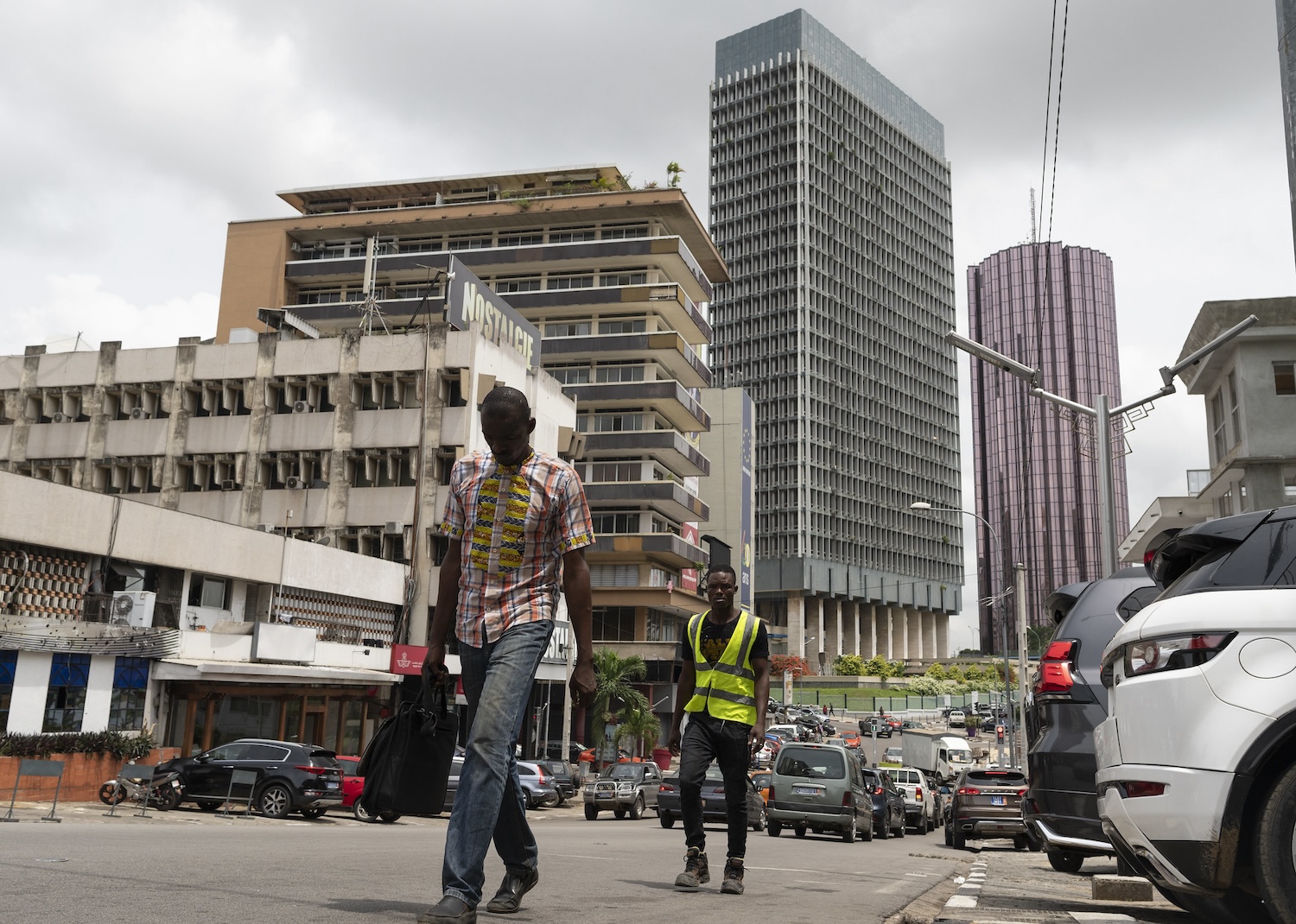International actors have criticized decisions by the Trump administration to reject the Paris Climate Accord, abandon the Trans Pacific Partnership, and withdraw from a United Nations declaration intended to protect the rights of migrants. However, there is one international body, the Paris Club, whose members may be rooting for the United States to leave. That’s because, in the absence of congressional action, continued US membership in the Paris Club could impair the economic prospects of some of the poorest countries in the world.
Some context on the Paris Club
The Paris Club, which first convened some 60 years ago, is a group of government representatives whose most important function is to negotiate agreements to reduce or relieve outstanding debt between debtor countries and Paris Club members. Over the years, the Club has concluded 433 agreements with 90 different debtor countries, with the number of agreements peaking at 24 in 1989. In recent years, as shown in the chart below, there has been little to no activity:
In its negotiations with debtor countries, the Club operates in accordance with six principles:
-
Case by case: The Paris Club makes decisions on a case-by-case basis in order to tailor its action to each debtor country's individual situation.
-
Comparability of treatment: A debtor country that signs an agreement with the Paris Club agrees to seek comparable terms from all bilateral creditors, including non-Paris Club commercial and official creditors.
-
Conditionality: Agreements with debtor countries will be based on IMF reform programs that help ensure the sustainability of future debt servicing.
-
Consensus: Paris Club decisions cannot be taken without a consensus among the participating creditor countries.
-
Information sharing: Members will share views and data on their claims on a reciprocal basis.
-
Solidarity: All members of the Paris Club agree to act as a group in their dealings with a given debtor country.
The United States has historically played a major role in the Paris Club, due, in part, to the large number of loans and guarantees it has extended to other countries over the years. But as the result of a shift from loans to grants, US credit exposure to sovereign governments has fallen dramatically—from over $90 billion USD in 1999 to roughly $35 billion today—and much of what remains is in the form of guarantees. The number of countries that owe the United States money or have a guarantee has dropped from 135 to 85 over the same period.
Here’s the problem:
In cases where the US government is still a creditor, the consensus principle (cf. principle 4 above) stops any Paris Club debt negotiation from proceeding without US participation, but the United States is unlikely to participate in any agreement that requires debt reduction due to current budget constraints.
At the beginning of each negotiation process, the IMF seeks assurances (“financing assurances”) from individual Paris Club creditors that they are willing to provide the debt relief needed to fill the financing gap built into the debtor country’s IMF program (cf. principle 3 above). Historically, the US Paris Club representative has not provided such assurances without having the necessary authorization and appropriation of funds for debt reduction from Congress.
Under the Federal Credit Reform Act of 1990, an appropriation by Congress of the estimated cost of debt relief—on a net present value basis—is required for debt reduction. And there is a value for all debt owed to the United States, even if it hasn’t been serviced in decades (which is the case for several countries that currently owe money to the United States).
Unfortunately, the United States currently lacks any authorization or appropriation for debt relief so it is not in a position to provide the IMF with any financing assurances. Moreover, the outlook for future US funding isn’t great. The administration’s FY 20198 budget request seeks reduce the foreign assistance budget by almost 30 percent and there is no request to authorize debt relief. Congress, too, has shown little interest in providing funding for debt relief. Appropriators consistently rejected requests to fund the US commitment to the Multilateral Debt Relief Initiative—to the point where the Obama administration stopped asking.
What’s more, the US budget process itself creates an enormous obstacle to future US participation in Paris Club agreements. The process for formulating a budget begins almost a year before the fiscal year begins, which means that Treasury Department planners are asked to anticipate the need for funding almost two years in advance of an actual request for financing. This is at odds with events in the real world, where liquidity and solvency issues in debtor countries can evolve quickly.
To date, neither the executive nor the legislative branch have demonstrated a willingness to establish “rainy day” funds for unforeseen emergencies. In the past, this problem has been avoided by packaging a request for debt relief money as part of a large, multilateral initiative such as the Heavily Indebted Poor Country Initiative, or by including it in a supplemental budget request for an emergency, such as defense spending for Iraq or the emergency spending for Tsunami relief. But amid growing budget pressures, future debt relief cases are unlikely to be able to take advantage of these vehicles.
The United States and the Paris Club are likely to confront this US funding problem head on when a country from sub-Saharan Africa comes to the Paris Club for debt relief, whether that’s one of the three remaining HIPC Initiative countries—Sudan, Somalia, and Eritrea—or a country currently in debt distress such as Zimbabwe.
A potential nightmare scenario
In the summer of 2018, the IMF and the Government of Somalia agree on a staff-monitored program (SMP) that meets the standards needed for HIPC debt relief. Somalia fulfills the SMP requirements and requests an IMF funded program in 2019. So, in July of 2019, the IMF requests financing assurances from Paris Club members, at which point the United States refuses to provide assurances—due to the absence of authority and lack of funding—and stops Somalia from receiving debt relief despite support from every other creditor. Condemnation of the US position begins.
What can be done to prevent this nightmare scenario? I offer three potential options:
- In the FY 2019 budget, Congress should re-institute language authorizing a transfer of resources from State Department to Treasury to cover the cost of bilateral debt relief. While the Treasury Department has been the US agency that has traditionally had to include the appropriation for debt relief in its budget, it makes more sense for State Department to take on this role, particularly given that Treasury has almost $2 billion USD in unmet commitments to the multilateral development banks.
- Like many states have done to protect themselves from unforeseen emergencies, the executive branch should work with Congress to establish a “rainy day” fund that can be tapped when needed to cover the cost of bilateral debt relief. Congressional oversight could proceed by subjecting its use to a rigorous congressional notification process.
- The executive branch and Congress should work to secure an understanding that the loans extended to countries before the Federal Credit Reform Act went into effect and which have not been serviced in decades are “uncollectible” and that no authorization and/or appropriation is required for the United States to participate in a Paris Club debt treatment agreement (the legal basis for doing this is subject to interpretation).
In the absence of one of these three options or some other creative means to address the lack of funding for bilateral debt relief, the United States will find itself in the position of preventing some of the poorest countries in the world from normalizing their relations with the international financial community—stifling their access to support for critical development needs. The administration and Congress can work in concert to avoid this truly untenable position, but if they fail, the United States may no longer be welcome in Paris.
Disclaimer
CGD blog posts reflect the views of the authors, drawing on prior research and experience in their areas of expertise. CGD is a nonpartisan, independent organization and does not take institutional positions.





